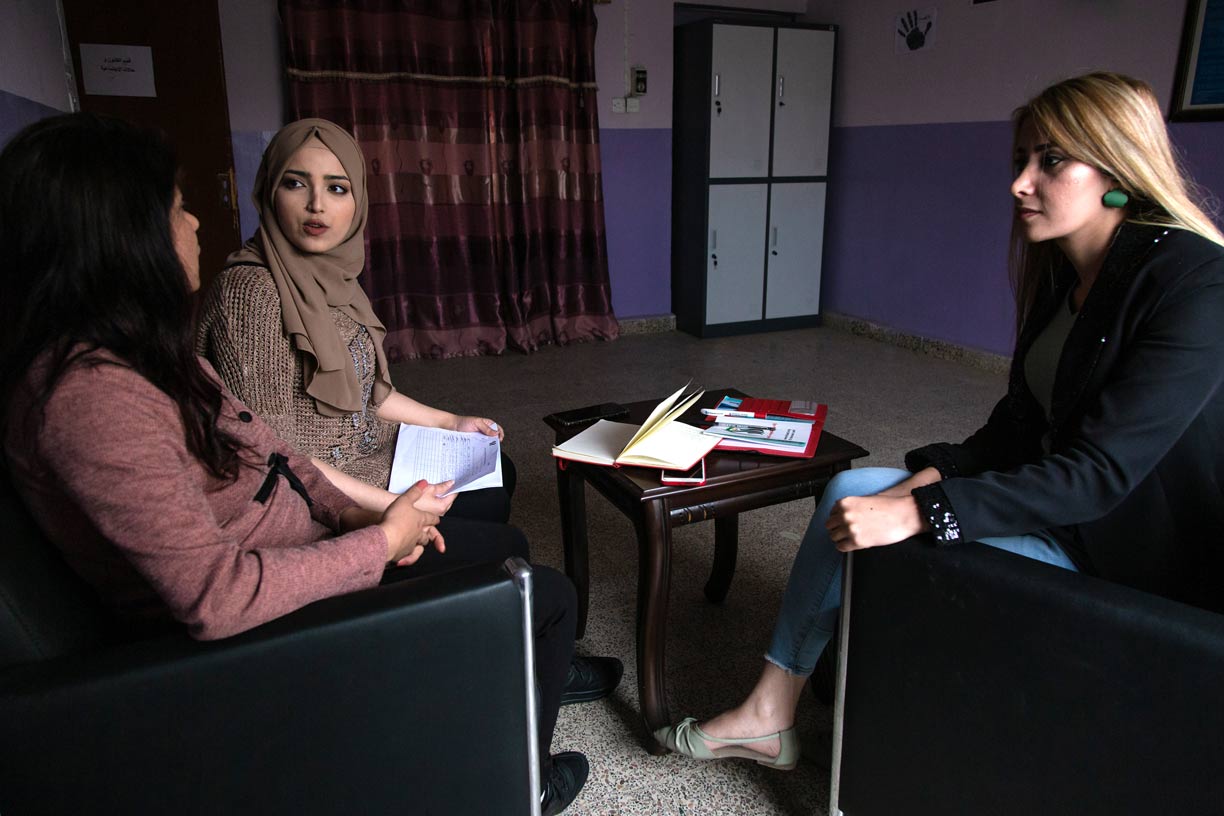Money to women’s organisations is crucial
In a society where there is little support for women’s rights, organisations such as Kvinna till Kvinna’s Iraqi partner Pena Center can make all the difference.

In Kirkuk, Iraq, Pena Center has had open doors to women subjected to gender-based violence or other violations of their human rights for more than 15 years.
One of the centre’s programme participants is Zahra*. She’s originally from a highly conservative area in Iraq but was displaced with her family when ISIS terrorists attacked their home area.
“One day, they asked all women in the camp to participate in a meeting. That’s how I met the staff at Pena Center,” says Zahra.
Wasn’t allowed to attend school
She’s at the centre today to receive a wheelchair. As the sole carer for her two parents, both of which are disabled, Zahra is struggling financially as well as with the workload and had asked Pena Center for help. The wheelchair will help the family’s mobility.
Zahra financial situation is tricky. She wasn’t allowed to attend school or to marry—her older brother forbade it—which means that she can neither read nor write.
“He wanted me to devote my life to taking care of our parents. In a way, I was deprived of a real life. I’m happy because I served my parents, but as you can see, now I’m not able to serve them well,” she says.
Financial rights
At the centre’s legal department, they’ve started digging into her financial rights.
“There are always more issues, when you start looking,” says Bayan Abdul Wahid. She is a social worker who has been working at the centre since 2019.
It also turns out that the family has denied Zahra the right to inherit a close relative who passed away. According to Iraqi law, both Zahra and her parents have a claim over a sum of the money in his inheritance.
“I felt like I didn’t have anybody when my brother died, but now I know that there are people working hard for my human rights and here I am among them,” says Zahra.
International support crucial
It can be difficult to work for women’s rights in a society where conflict and traditional values affect the role and position of women.
“We know the necessity of our role for women in this society, but the authorities here are not interested in supporting and strengthening the role of women’s rights organisations,” says Bayan.
She adds that this is due to the simple fact that those in power are nominated by the majority, who are the cause of the violation of women’s rights.
Bayan is, however, optimistic—even though the centre handles many cases. She says that international support, like that from Kvinna till Kvinna, is crucial and makes her team determined to ensure justice for women in Iraq.
“Just like we wish justice to all women in the world,” she says.
*Zahra wants to remain anonymous. We’ve therefore replaced her real name.
Kvinna till Kvinna has worked for women’s rights in Iraq since 2005 and we have an office in Erbil. We support and work with several partner organisations, including Pena Center to Combat Violence Against, to end all forms of violence against women and girls and support survivors. Read more about our work in Iraq.